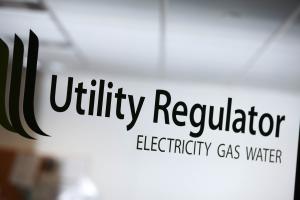
Today the Utility Regulator publishes a report on recent research into consumers’ understanding, views and opinions on various aspects of climate change, net zero and other energy transition and decarbonisation issues. This is the first time quantitative research of this kind has been undertaken with Northern Ireland consumers.
The purpose of this research, which was carried out between January and March 2021, was to survey a statistically representative sample of Northern Ireland energy consumers to understand and provide baseline data on:
- Consumer awareness and understanding of climate change/net zero etc.;
- Consumer behaviour in relation to Low Carbon Technologies, energy efficiency measures and electric vehicles ; and
- Consumer attitudes to energy transition related issues such as: trusted sources of advice; support for different types of policy interventions; willingness to pay; and priorities for energy in the future.
Some of the high level results of the survey are presented below.
- 64% of consumers in Northern Ireland are concerned about climate change; and 59% said that they consciously minimise the amount of energy they use at home to help reduce carbon emissions or limit climate change. These are both positive results and highlight that there is a willingness to engage in decarbonisation; but there is still room for improvement in this area.
- The purchase/installation of Low Carbon Technologies, energy efficiency measures and electric vehicles has been limited, with lower energy bills/running costs being the most common reason for purchase/installation. However, more than half of consumers said that a financial incentive would make them more likely to purchase/install these. We may include some work on financial incentives in future research on energy transition related issues.
- 82% of consumers support the introduction of a single advice body in Northern Ireland to provide consumers with information, advice and support to reduce their carbon emissions.
- 42% of consumers said they would not be prepared to accept an increase in their energy bills to fund investment in the energy infrastructure to support renewables – with half of these consumers stating that they felt they were unable to afford to pay anything additional on top of their current energy bill. It is important to ensure that those consumers who are vulnerable are not left behind in the energy transition; and that costs are allocated appropriately and fairly.
- When asked to rank energy priorities, consumers ranked cost and security of supply as equally important, with achieving net zero being prioritised third. In terms of future concerns, consumers were most worried about steep rises in energy prices, followed by an increase in power cuts (security of supply).
The research will provide an important insight into consumer views on climate change and the challenge of achieving net zero. It is also timely, as the Department for the Economy is currently consulting on a future Energy Strategy for Northern Ireland and more widely, decarbonisation goals are being pursued across many organisations.
The research outcomes will support our future work streams and help in providing context to some of the future policy decisions regarding decarbonisation and the challenge of achieving net zero.
A presentation on the key findings has also been published.
Any comments or queries in relation to this paper should be made to Ursula O’Kane: ursula.o’kane@uregni.gov.uk